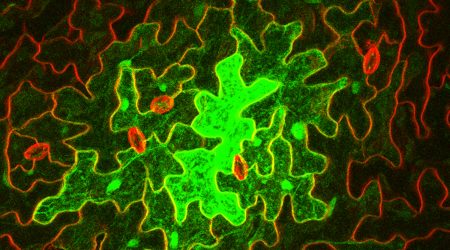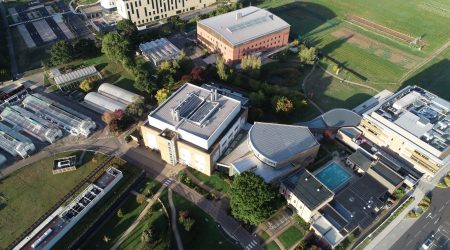We caught up with Dr Natalie Porter, who worked at the John Innes Centre as Programme Manager for the Genes in the Environment (GEN) Institute Strategic Programme (ISP), one of four ISPs through which we receive core funding from the Biotechnology and Biological Sciences Research Council (BBSRC)
What is your research background?
I studied marine biology for my degree at the University of Liverpool then moved to Heriot Watt University in Edinburgh for my MSc in Marine Resource Development and Protection.
My PhD at the UEA investigated the sea-surface distribution of carbon dioxide, methane and nitrous oxide. To collect the data, I took part in research cruises to the Arctic and across the Atlantic on the Atlantic Meridional Transact.
It was an exciting experience which allowed a range of different environmental factors affecting the production of these gasses to be studied, including seasonality as the ship left the UK in spring and ended its journey in Chile in autumn.
Life on the ocean waves sounds very different to the John Innes Centre. What brought you here?
I liked Norwich and was craving some stability after a lot of moving around for my studies.
During my PhD, I enjoyed outreach and science communication. Sometimes with a PhD you get very narrowed down and I’ve always loved to learn about a wide range of things. When I spotted the GEN Programme Manager job I initially thought, ‘Oh no, I couldn’t do that’. Then I started thinking of the skills I acquired from my PhD: project management, science communication, interpersonal skills, organisational skills, writing skills, report writing. You get a lot of transferable skills from a PhD, which means you don’t just have to go for research jobs.
If I could offer advice to people currently doing their PhD it would be to learn what you enjoy, and build up as many skills and experiences as possible to strengthen your CV.
While I was at the John Innes Centre I did a PRINCE2 Project Management course, which is an international qualification that has been very helpful for my career. Plant and microbial science was different for me and some of the things I learned about at the John Innes Centre – such as CRISPR-Cas9 genome editing technology – are incredible.
What did your work involve at the John Innes Centre?
My job was to support research development, organising internal events such as the annual ISP Project Leader retreats. I organised the regular meetings and an annual GEN day. The aim was to get a big group of people from a variety of disciplines to connect as one group.
The second area was project managing the Pathways to Impact statement, so collating information from people to ensure we were reporting all research outputs and impacts to BBSRC.
I managed the GEN twitter account, edited the newsletter and worked with the communications team to write articles on some of the fundamental science stories from the GEN ISP.
Tell us about your interesting new job as the ClimateUEA Executive Officer?
At the John Innes Centre I worked with scientists, now my new job covers climate research right across the university; all the science departments, environment, humanities, policy, politics, philosophy, psychology, economics and medicine and health. I’m currently leading on developing a new website for the initiative and organising an internal conference.
The big idea of ClimateUEA is to increase interdisciplinary working and to connect people across schools and institutes, supporting research development and submission of large interdisciplinary climate-related bids.
ClimateUEA also communicates climate and climate-related research to internal and external audiences.
Sounds great. From your viewpoint can you give us some positives on climate change?
I feel positive when I listen to certain researchers. Their message is that it is not too late, but we need rapid action on climate change now.
COP26, the UN climate summit in Glasgow, which has been rescheduled to November 2021, is going to be very important.
Also, it is essential that the recovery packages from C-19 are aligned with our efforts to reach Net Zero emission targets.





